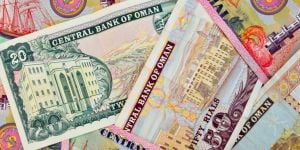
As inflation continues to drive up expat budgets, you're probably playing it safe and considering making savings. Perhaps you're wondering where to invest your money or how to manage the savings you've accumulated. Here are some practical tips.
It's possible to save money while you're abroad
First, let's dispel the notion that it is virtually impossible to save while expatriating. Of course, saving money will probably not be one of your priorities. In the first few months or even years of your stay abroad, you'll probably have little room to fill your wallet, especially if you're moving to cities like Hong Kong, Singapore, Zurich, Geneva or New York. According to the latest Mercer survey, these are the world's top 5 most expensive cities for expatriates. Even if you're expecting a substantial salary, the high cost of living will likely take its toll on your budget.
But saving money during your stay in your host country is still possible. Once settled in, you'll need to familiarize yourself with your new surroundings and cut back on unnecessary expenses. Find out about the best places to do your daily shopping. Figure out whether you're ready to give up on using a car and use public transportation, bicycles, or walking instead. What about the rent in your area? Have you considered finding something cheaper elsewhere?
Start by listing all of your expenses to find even the smallest overconsumption. Assess where you can make an effort to save. Don't set the bar too high. If you're an "all-car" person, don't switch to "all-walk" overnight (unless you like the challenge). Start by carpooling or leaving the car in the garage a few days a week. Try public transportation, invest in a good bike, or use the ones available in your city. If you can, consider remote working to keep your car in the garage. But be careful not to spend too much at home.
Investing as an expat: What's your savings profile?
Many investment opportunities are available to expats, for example, life insurance, stock savings plans, real estate investment, the stock market, cryptocurrencies, etc. However, many expats remain loyal to life insurance and real estate investments, despite the ups and downs of the latter. Real estate is still considered a safe investment.
Keep in mind, however, that any investment must be tailored to your situation: host country, duration of your stay abroad, financial capacity, knowledge of the host country's tax system (broad outlines), whether or not you already have assets, etc.
Just as important is knowing your "savings profile" and goals. Are you cautious, balanced, or dynamic? Unsurprisingly, cautious profiles refrain from investing their savings in cryptocurrencies or the stock market. They prefer low, safe returns to potentially high gains on a slippery slope. Conversely, dynamic profiles are willing to take significant risks for the best returns. In the middle, balanced profiles seek the right balance between security and risk.
Investment options for expatriates
Where should you invest your money when you're abroad? Below is an overview of expatriates' preferred investments and other investment solutions.
Life insurance
Along with real estate, this is the preferred investment for expatriates. It offers a good return and allows you to prepare for the future with minimal hassle. Life insurance is a risk-free investment that's easy to set up. It works like a savings account: you're free to make withdrawals or transfers. Moreover, life insurance can help you benefit from tax exemptions.
Stock savings plan
A little riskier than life insurance, the Stock savings plan allows you to invest in a portfolio of shares in European companies. The return is uncertain as it depends on the performance of the companies in which you have invested. It's best to have already built up your savings and invested your money elsewhere. You should also be prepared for market fluctuations. The Stock savings plan may also offer tax benefits if you don't break it for 5 years.
Real estate purchase
Real estate is still considered a safe haven even in times of global crisis (China, Germany, United Kingdom, Canada, France, Italy, Sweden, Norway, United States, New Zealand, Australia, etc.). There are several ways to invest in property: in your country of residence, in your country of origin, or in another foreign country. If you owned your home before you moved abroad, you may have rented it out. You can also choose to buy to let (100% investment) or to better prepare for your return -- the property you buy will be your future home. Investing in real estate also carries certain risks, especially if you're not on-site to view the property or if you're buying off-plan. Do not hesitate to consult with real estate professionals to ensure you're putting your savings in the right place.
Invest in a real estate investment trust
More affordable than buying a property outright, investing in a real estate investment trust is becoming increasingly popular. Real estate investment trusts are collective investment trusts. You don't buy your home alone but invest with several other buyers in a commercial or residential real estate program (depending on the trust you choose). The capital you have to invest is much lower than for a real estate investment. Programs are available for as little as 1,000 euros (per share). So, unlike buying real estate, you don't need a loan. However, investing in a real estate investment trust does come with some risk. Returns and capital depend on the real estate market. So there's no guarantee of dividend income. We recommend that you invest an amount that you are ready to "lose".
Invest in urban infrastructure
Even cheaper than buying a property, you can invest part of your savings in a parking space, a garage, a box, etc. Find out what is available in your city. Check the viability of the operation and the potential return.
Invest in a forest
Less popular, forestry investment offers excellent opportunities for long-term savings. It's also a green investment that is particularly popular with expatriates who want to give their investment a purpose. Their savings plan aligns with their lifestyle, which they want to respect the environment. Their investment in a forest can be aimed at saving an endangered green heritage while making a sustainable investment. Like real estate, forests are considered a safe haven.
Stock market
Before you invest all your savings in stocks, get some knowledge. It's important to understand how the stock market works before you take the plunge. Assess the risk and be prepared for losses. The potential returns are often greater than investing in real estate, a forest, or life insurance, but the risks are also multiplied. Don't let your banker manage your portfolio alone. Keep an eye on your stocks and the stock market.
Cryptocurrencies
Expats are getting in on the cryptocurrency action. The United Arab Emirates (UAE), Malta, Portugal, Germany, Switzerland, Mexico, Malaysia, and Bermuda are considered the most "crypto-friendly" countries. However, investing in cryptocurrencies remains risky. As with the stock market, extreme caution is recommended.
Buy art
Investing in works of art is one of the most unusual forms of investment. Still, it's an option for art buffs. But beware of tax issues and fashion. Art is considered a "volatile asset". Unlike a forest or a stone, there's no guarantee that your work of art will be worth the price you paid for it 10 or 20 years from now. Betting on world-renowned artists offers greater guarantees, assuming you don't come across a fake. Betting on new, up-and-coming artists can also be an excellent business. Either way, investing in art is an excellent way to combine your taste for culture with your desire to save.
Buying vinyl, accessories, comics, luxury clothing
In the vein of unusual investments that are becoming increasingly popular, think vintage. The return of vinyl and the secondhand boom have brought objects and clothing to the forefront of auction markets. As with artwork, these investments allow you to diversify your portfolio while connecting with your passion. Again, beware of fakes and scams.
More tips for investing your money abroad
Your banker is your ally. Present your project to them before committing to an investment. Do you still have a bank account in your home country? Do you want to keep your savings in your home bank, your expatriate bank, or both? The same question applies to real estate investments. This question is even more important if you're moving abroad for a short period. It may be more advantageous to invest your money in your home country if you're planning to return.
Beware of taxation, double taxation, and possible offshore accounts. Check whether your situation is compatible with holding certain accounts (passbook accounts). Some accounts are linked to your place of residence. If you leave your home country, your domicile will change. Your banker will advise you on which accounts to close and which to keep.
Beware of scams. Since the health crisis, almost everyone claims to be able to make you a millionaire in 3 months. The risks are more significant with trendy but risky investments like cryptocurrencies. So, remain on the side of caution.
In any case, don't put your savings in one place, but diversify your portfolio. It is the best way to manage your investments while securing some of your returns.



















